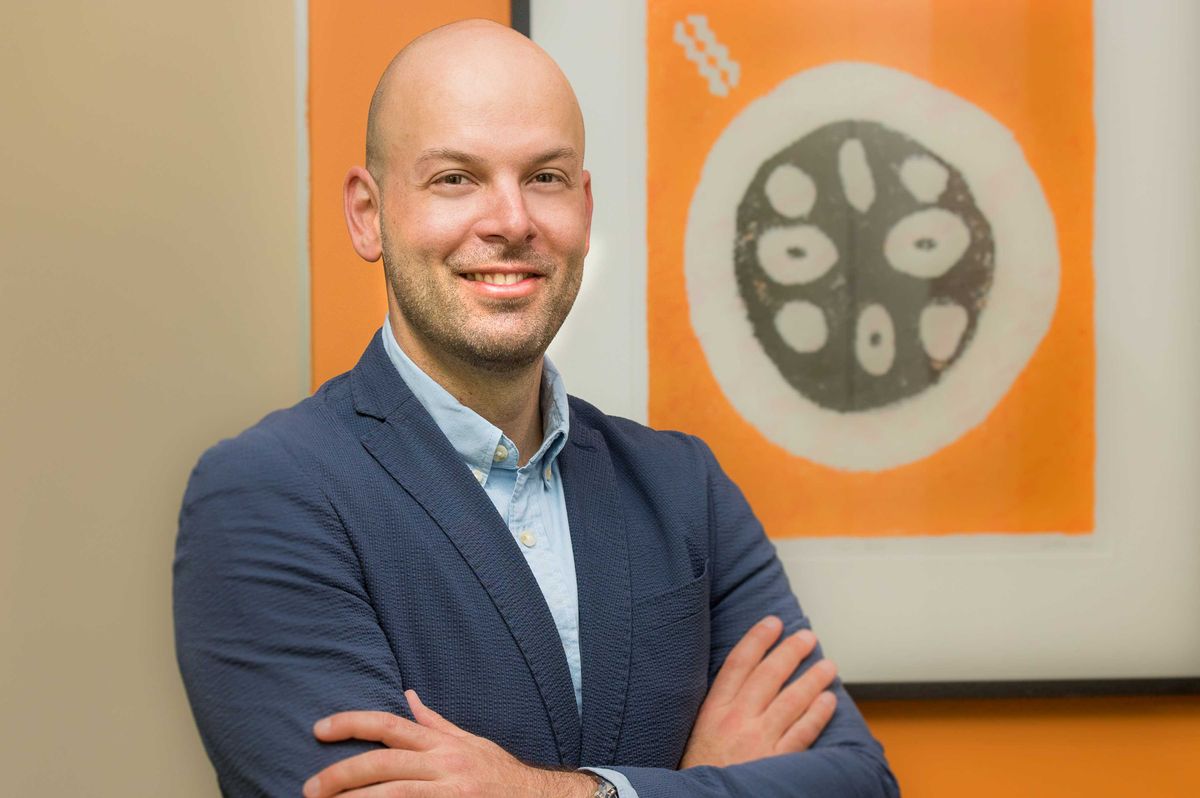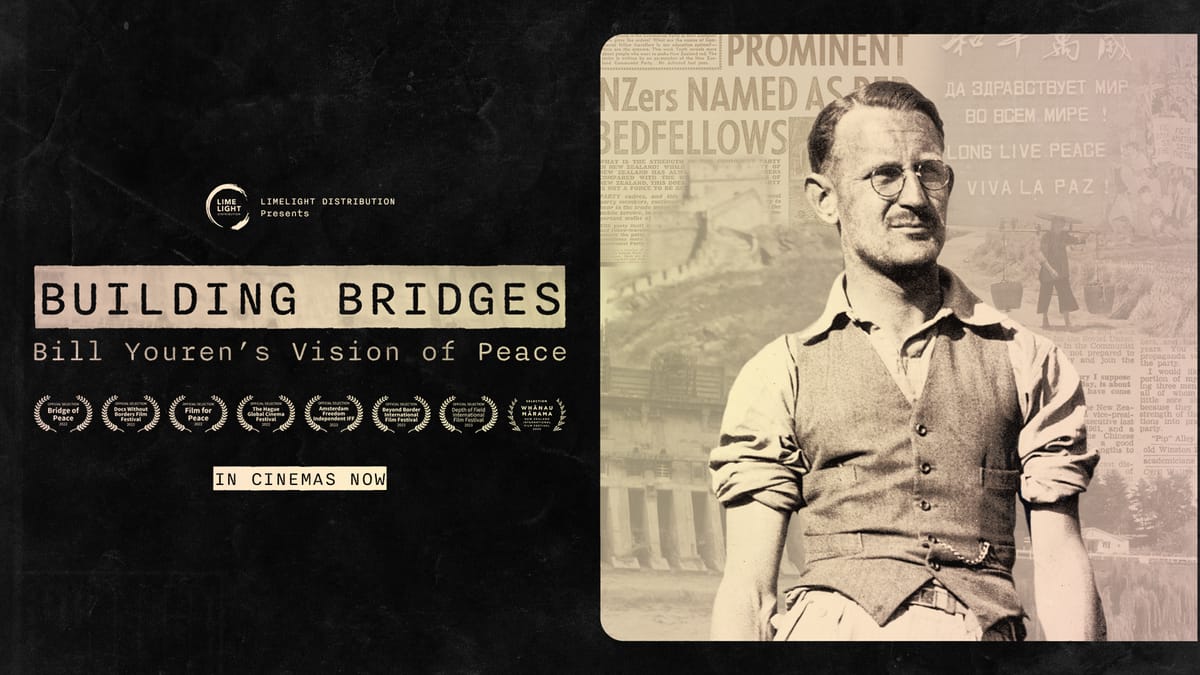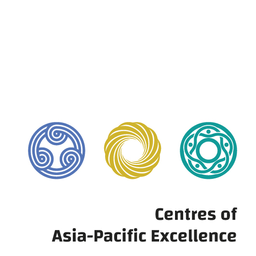Asia Studies in Aotearoa
Are we doing enough to develop the next generation of Asia experts to enrich our relationships with this vital region? Four experienced Asia Studies academics give us their views.

Asia is increasingly important to Aotearoa, yet the study of Asia in our universities seems to be shrinking. Asia Studies programmes are struggling to maintain their size, let alone grow. But it is not all bad. We are fortunate to have some incredibly interesting and experienced Asia-experts keeping the flame alight.
We asked four scholars to help non-academics understand the key trends—why Asia Studies is important, what’s working, what’s not, and how we might reignite the area.
Professor Paul Clark specialises in Chinese popular culture and film. Professor Mark Mullins’ expertise lies in the study of religion in Japan. Dr. Hee-seung Irene Lee is a film study specialist with a focus on Korean film and media and East Asian popular culture. All three are at the University of Auckland. From the University of Otago, Professor Paola Voci is an expert in Chinese language, culture, film, media, and digital culture.
Why is academic research and learning about Asia important for Aotearoa ?
“It is uncontested that Asia is our major partner across many domains - Asia is embedded in everything we do,” says Voci. Not only does New Zealand depend on trade with Asia, the region includes some of our key diplomatic and strategic partners. It is crucial to have experts with knowledge and language skills to help the government and businesses navigate the region. This is the best way to understand and protect New Zealand’s interests and enrich its bilateral relations with Asian partners.
Within our own shores, Asia studies contributes to mutual understanding to help New Zealand flourish as an inclusive and harmonious society. Asian immigrants have of course been important to our cultural and social fabric since the 19th century; even more so in the age of globalisation. We are increasingly multicultural, with significant Asian representation. As Mullins points out, “around 46 percent of students at Auckland University are of Asian descent”.
Even though Asia is more present and information more readily available than ever, misconceptions still develop - which Asia Studies programmes can help to correct. Lee discussed how this applies even when a state’s soft power increases, as in the case of South Korea: “The Korean wave in particular means it’s important that people also go deeper than just K-Pop”.
What is sometimes forgotten, but underlines the importance of understanding Asia, is that Aotearoa, as Mullins says, “is itself an Asia-Pacific state”. Clark’s interest in Asia was shaped by being part of “the generation that realised we're not somehow in Europe.” New Zealand’s colonial history make it more susceptible to slipping into Eurocentrism—studying Asia can offset this mindset. Lee emphasises that by “creating a critical distance between what we believe we already understood, Asia Studies is also important for critical thinking and forming identity”.
The motives and aims of Asia scholars
Asia Studies is multi-disciplinary, so Asia Studies scholars are spread across different fields, from media studies to theology. They cover a wide range of areas, approaches, and goals. A factor uniting them all is their contribution to helping us understand Asia in all of its aspects. The way Mullins puts it, they “all contribute in different ways to understanding different pieces of the puzzle”.
Asia scholars bring a diverse array of personal motivations and experiences that illuminate their dedication to the field.
Voci is a “strong believer in open societies, and the idea of creating space where diversity is not just a buzzword, but actually contains different viewpoints. I want to make whatever contribution possible to constructing a truly multicultural, diverse New Zealand. For that, pockets of minority discourses need to be supported”.
Lee is driven by her goal of encouraging “New Zealand film students to take the Korean Wave as an example”, to see how even a marginalised pop culture and media industry, like Aotearoa’s “can establish firm ground in the global cultural sphere”.
Clark was one of the first New Zealand students to go on official exchange to study in China in 1974. He was struck by the clash between the official narrative during the Cultural Revolution on one hand, and his personal interactions on the other. This drove him to study film and mass media in an effort to “understand that phenomenon called China”, to get beneath the surface.


Food and language apps are great connectors but Asia Studies develops a deeper and more meaningful understanding
The Asia Studies pendulum
Asian cultural and language studies have not always struggled. These interviewees have witnessed the evolution of the field over the past decades.
As immigration from Asia was rapidly increasing in the 1990s and 2000s, the prospect for Asia Studies seemed promising. Clark recalled how in the 1990s, there seemed to be a lot of public awareness for the importance of Asia. People would say that “China is the flavour of the month”.
While people began to lose enthusiasm for Indonesian by the end of the century, Korea began to rise in popularity from the late 2000s, driven by the K-Wave of Korean music and media. In the last decade, interest in Asia as a whole, but especially China, has been shrinking, at least on campus, and along with it so have the resources available to Asia Studies. Reasons for this are numerous.
One is an increasing perception that learning languages is unnecessary given the development of translation technology and the prevalence of English. However, this neglects some incredible benefits that come with learning a language.
As Clark pointed out, learning a language “is such a transformative experience when done with commitment; it opens so much for you in terms of not just immediate utility of the language, but your cognitive abilities, growth, and ability to work across cultures”.
Voci also emphasised the character-building aspect of learning a second language: “It’s a uniquely humbling experience. With language, even when you’re good, you’re never good.”
Perplexingly, another cause of this might be the high levels of immigration from Asia. Clark suggested that non-Asian New Zealanders might expect “that the new Asian immigrants would fill roles relating to Asia”, since “surely they’d have a head start”. This might discourage non-Asian students from venturing into the field.
Another reason has been the perception of China’s rise as a threat, driven by the depiction of “China as an evil hegemonic power out to swallow us”—a depiction Clark rejects. Similarly, Voci acknowledges that there are reasons to be critical of China, but that this makes it all the more important to learn about, and understand it. Clark, who describes himself as “a natural optimist”, is “still hopeful” that the fields are just going through a rough patch that will pass and that relations with China might improve again.
Voci points out another issue. In present day New Zealand, interest in Asian culture at a surface level is widespread—from going to Asian restaurants to listening to K-Pop or engaging in other trends relating to Asia. However, most people “do not want to engage at a deeper level” or venture outside their comfort level beyond an English-speaking and culturally New Zealand lens.
Alternatively, Clark laments that there are also those who focus almost exclusively on the economic value of Asia, and less on interactions that do not promise financial returns: “One frustrating thing is that when I say I do research on China, the response is ‘oh, our biggest trading partner’, not ‘interesting place, I have a Chinese neighbour’”.
What is going well
It is not all doom and gloom. Lee pointed out that there are already “generations of Kiwis who are equipped with passion for, and knowledge of, Asian area studies,” for instance through cultural exchanges. They have been “instrumental for New Zealand’s ability to navigate the complex and confusing post-Cold War world”.
Various interviewees highlighted the role of the Asia New Zealand Foundation and Prime Minister’s Scholarships in facilitating person-to-person exchanges and the value of the New Zealand Asia Studies Society in bringing together Asia specialists across universities. Of course, the closing of the Centres of Asia-Pacific Excellence will shrink this national coordination and the range of opportunities on offer. However, the government also received praise, including from Lee: “New Zealand has successfully leveraged Asia Studies knowledge to enhance its global understanding and engagement across multiple different governments.”
The positive trends include a rise in baseline knowledge. Lee observed that before the internet age, the role of Asia Studies academia revolved more around “introducing and explaining”. She recalled how she used to have to specify whether she was from North or South Korea. Nowadays, general awareness has grown, so “such basic explanations are no longer necessary”. Teaching has become more about helping students go deeper to gain a more “nuanced and layered cultural understanding”.
Mullins emphasised that New Zealand continues to have “good scholars and teachers doing their own research, so we have some really strong perspectives to understand Asia, not just in relation to us, but globally”. The interviewees themselves continue to produce compelling research, from nationalism and religion in Japan, leisure in Beijing, and Chinese soft power to the impact of Netflix on Korean media.
What is not going well
Asia Studies finds itself in “a bit of a gloomy period”, says Mullins. The last few years have been discouraging and damaging to Asia Studies, and really higher education in general, due to the cuts across universities and institutions. Arts faculties and the humanities, including study of all foreign languages they teach, have been particularly challenged. The closing of the Centres of Asia-Pacific Excellence is emblematic of this shift.
Helpful changes to funding are not in sight under the new government. New Zealand is not unique in this regard, notes Lee: “[Cutting area studies] is a common response to the decline in funds and enrolments” across the world. The effect is the “loss of seasoned, mature specialists”.
Given our existing expertise and infrastructure built up over the years, the current pressures on the field of Asia Studies “won’t be felt immediately,” says Voci. The interviewees expressed concern about the long-term effects. At some point, Voci noted, New Zealand will “need people that won’t be there,” since we aren’t training them now.
This is why it is crucial to plan ahead and make far-sighted strategic decisions. “Training area studies scholars is very time-consuming and costly because it requires synthesis of interdisciplinary skills”, says Lee. A pool of expertise is “hard to re-establish in times of need”.
Suggestions
As things stand, it seems that most Asia Studies academics have to figure out how to make things work with just the core people left until the funding situation changes. Of course, a lot of changes that would make the biggest difference are in the government’s hands, most notably a change in the funding model of tertiary education. Voci argued that the government could make a big difference by making the study of language compulsory or at least raise the language requirements of certain jobs.
The interviewees had some suggestions about how universities and the Asia Studies departments themselves could change things. Says Clark: “We, the departments, need to work on showing that the study of Asia is a good investment” and make more of an effort to “push ourselves forward and offer assistance”, for instance by organising conferences and other events that provide value. The CAPEs had been valuable in this respect.
Lee suggested the option of “encouraging area studies specialists to collaborate with and participate in other programmes”. She mused that this would provide options to the many students who would still really like to engage more deeply with Asia, even if there are fewer who want to major in the subject.

International Business is another field where Asia specialists can be found
Another possibility would be for New Zealand’s universities to coordinate and divide up the teaching areas. Asia Studies could be concentrated at one university, or the different regions could be spread across institutions with one university focused on Southeast Asia and another on Northeast Asia. For instance, Christchurch has the “Southeast Asia Research Initiative”. Mullins pointed out that this was “no easy solution”. To avoid displacing faculty or disrupting existing programmes, the transition would have to be gradual, with “each university expanding towards their strengths”.
Time for new strategies and innovation
While Asia Studies faces significant hurdles, the dedication of its scholars and the critical role of the discipline in shaping New Zealand's future with Asia remain undiminished. The global scholarly contribution of New Zealand-based Asian Studies researchers over many years should not be underestimated. Strengthening these programmes through strategic investments and innovative approaches will not only safeguard Aotearoa’s interests but also enhance its cultural and economic ties with Asia, ensuring a more inclusive and globally aware society.
* Quotes in this article may have been edited for clarity and brevity. The views expressed in this article do not necessarily represent the views of the Centres of Asia-Pacific Excellence.
Read more about Asia scholars in Aotearoa New Zealand








